The Honda HR-V subcompact crossover has been around since 2013. Here in the Philippines, it was launched six years ago in 2015, and a facelifted version then followed in 2018.
Now that it’s 2021, the all-new third-generation HR-V was unveiled in Japan. The new model will then be launched in the same country by April.
All-New Vezel (HR-V) Teaser Video
With the local crossover segment being as competitive as it is locally, it is highly likely that it’s going to see a local release as well. So how does the third-gen Honda HR-V differ from the currently available second-generation HR-V? Let’s find out.
2021 Honda HR-V Old vs New: Exterior
From the outside, the new Honda HR-V looks more modern. Moreover, it might be the herald of a totally new Honda design language as its new front fascia is unlike any of the current models available locally including the outgoing HR-V.
From the front, one can see that the single, large, and recognizable chrome slat above the old black-colored grille is gone. Replacing that is a sleeker, horizontally oriented series of thin slats, at the center of which is the Honda logo. Instead of chrome or black, the new grille follows the main body color of the car.
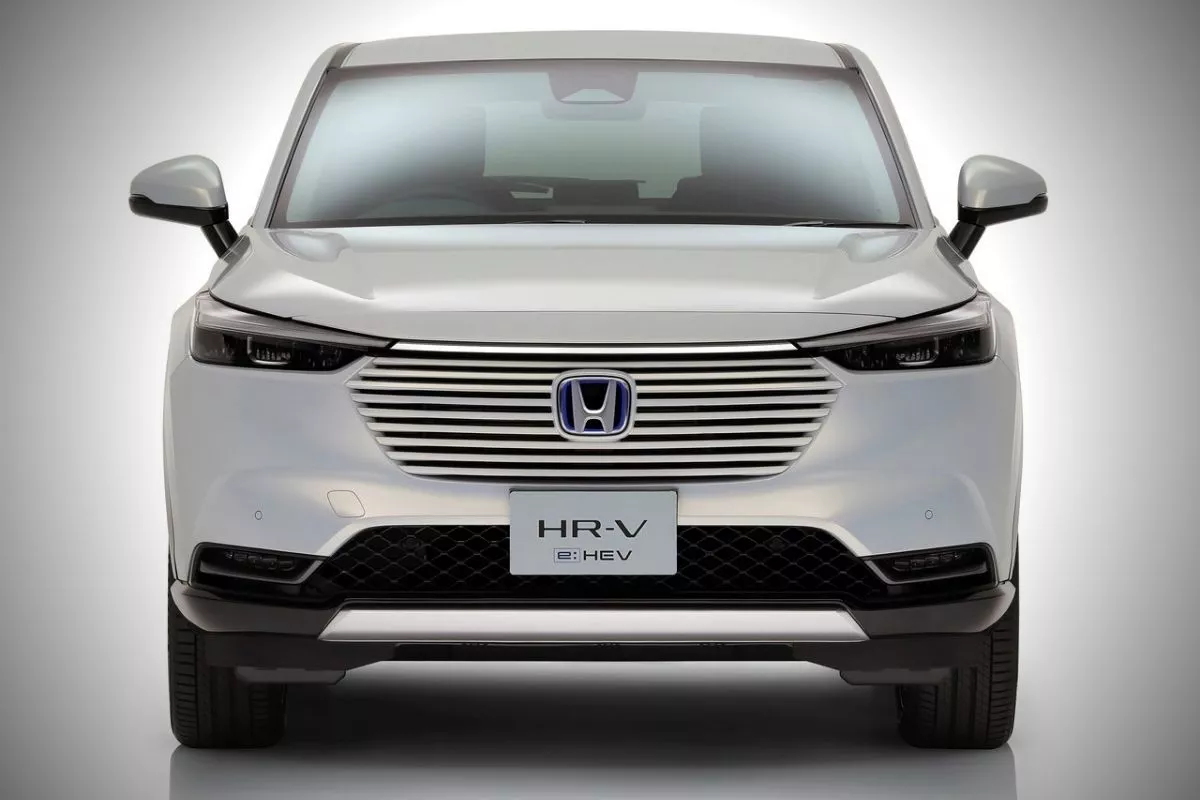
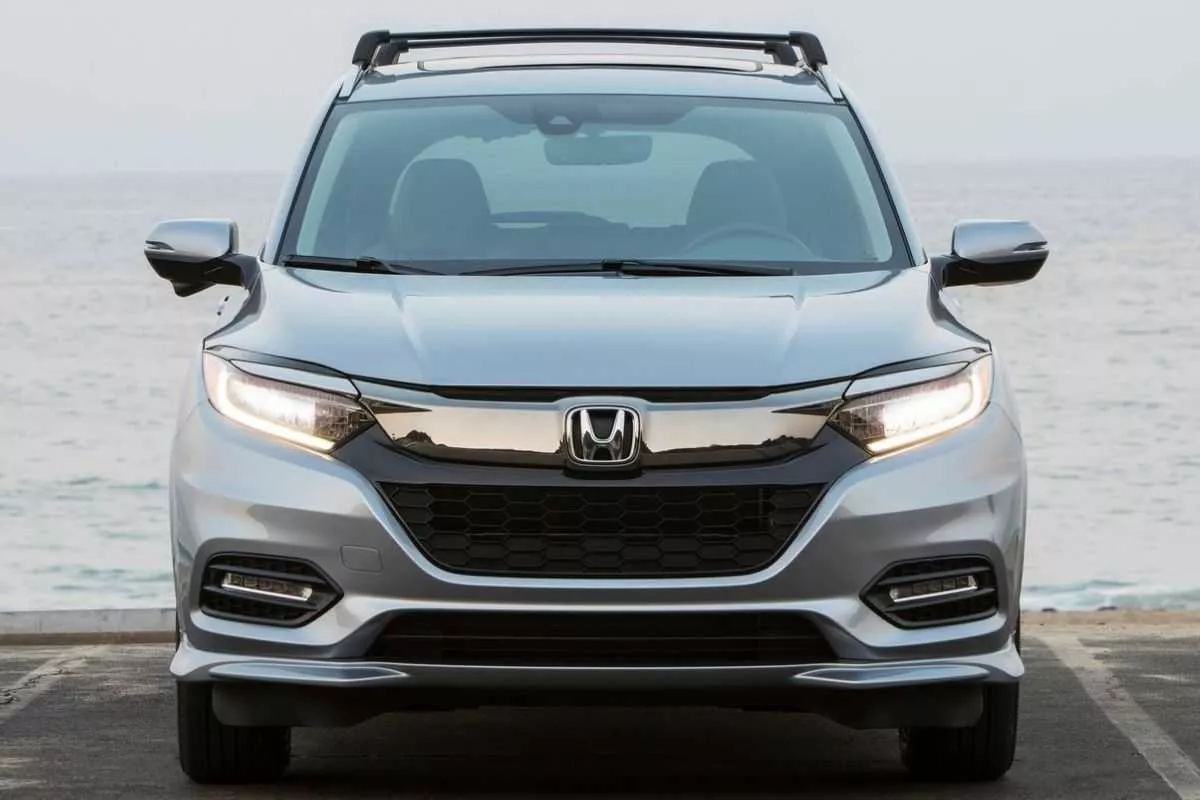
Compare the old HR-V (right) against the new HR-V (left) using this slider
>>> Related: 2021 Honda HR-V debuts with new sleek look
Flanking the new grille is a pair of sleek headlamps, and down below is a honeycomb mesh-type lower bumper. The outgoing HR-V does have a mesh grille but it was positioned higher up, close to the chrome slat.
From the side, the new HR-V also does away with sloping roof-line from the second-gen model and replacing it is a straighter roof. This might mean more headroom for rear passengers, but the straighter design offers a simpler, but more elegant-looking shape.
Towards the rear, the new HR-V retains some details from the outgoing model. It still has the black-colored lower rear bumper, which is a part of the HR-V's body cladding. The taillights are now linked together via an LED strip bisecting the width of the crossover’s rear end. The taillights themselves are slimmer and continue the new HR-V's simple but elegant theme.
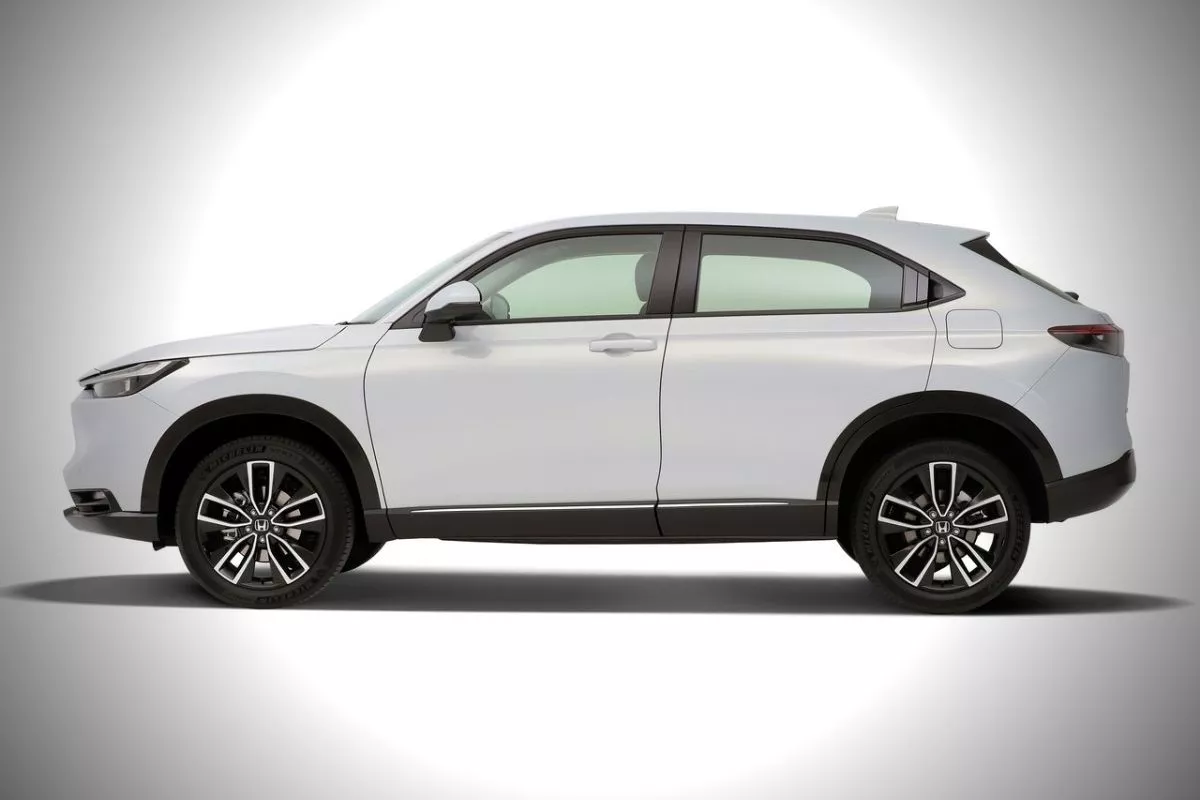
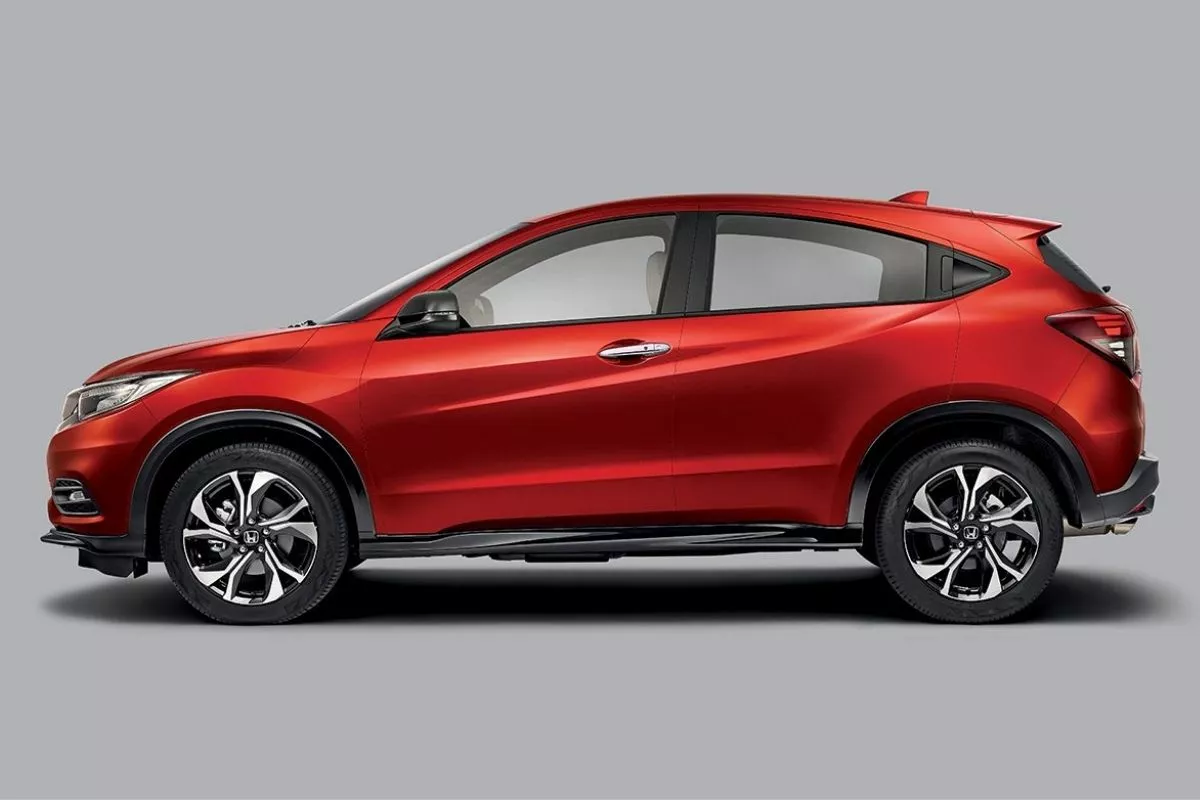
The new HR-V (left) features a straighter roof-line
2021 Honda HR-V Old vs New: Interior
Inside, the new HR-V has been revamped to provide a simpler, slimmer dashboard. The steering wheel also follows the design of the new Honda models, and the 9-inch touchscreen assumes the current “floating-type” trend in infotainment systems. This is in contrast to the old one’s headunit which featured a more traditional position in the center of the dash.
Moving on to the air-conditioning vents, the round-shaped ones on top of the dash, and the quirky triangular main vents found on the old HR-V are both replaced by sleeker vents. These are seamlessly incorporated into the minimalist dashboard design and are more uniform-looking than the ones on the outgoing model.
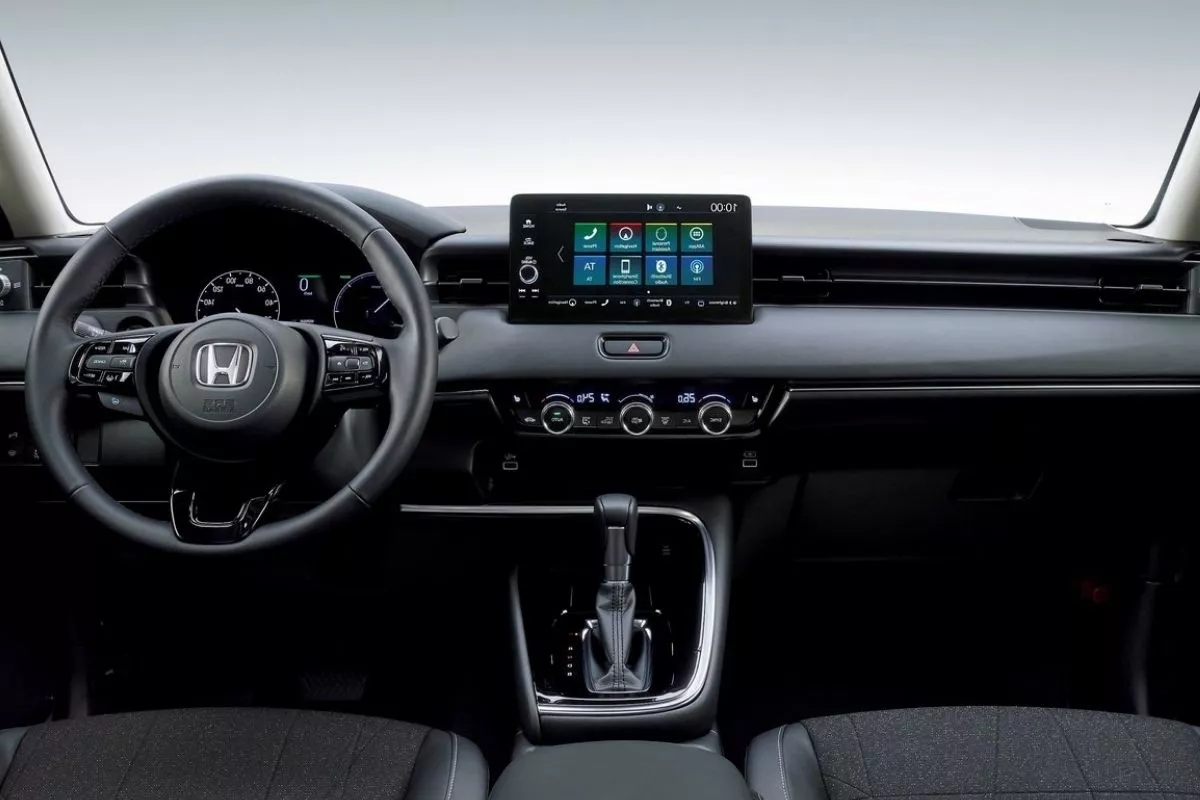
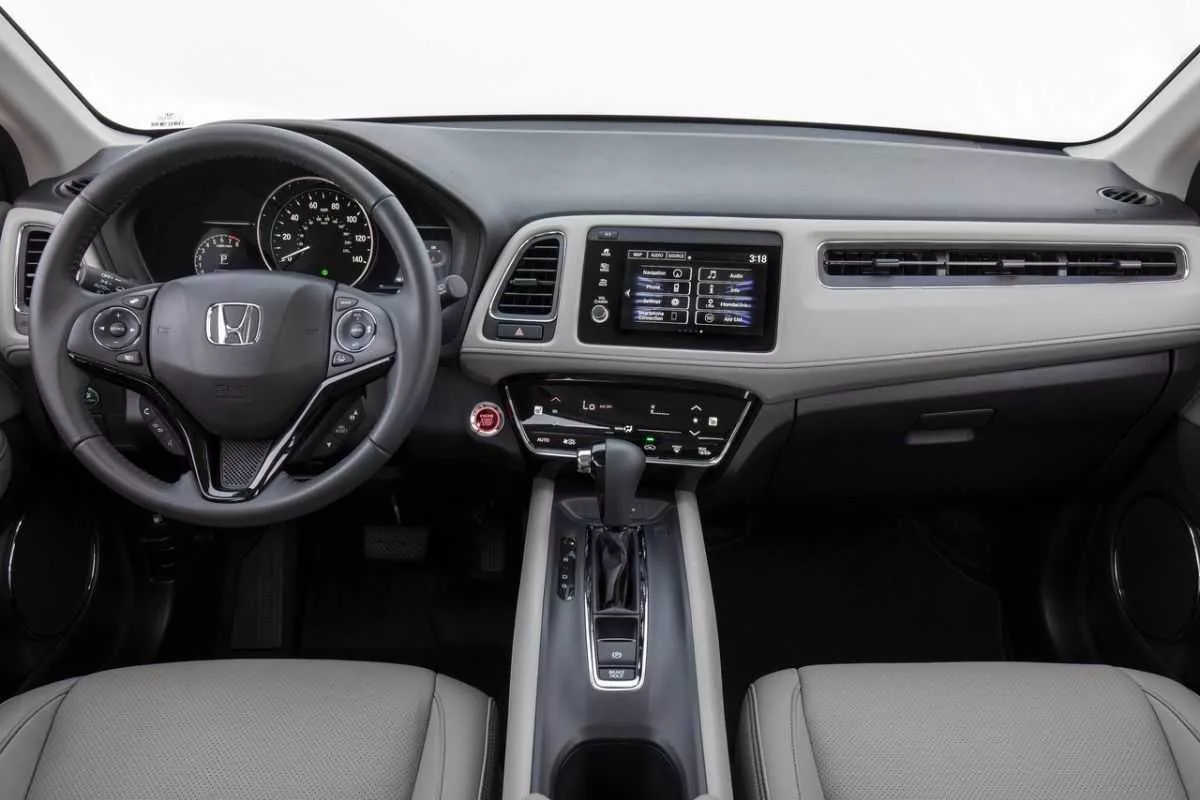
The minimalist theme continues in the third-gen HR-V's (left) interior
As per usual, the rear seats can be folded down for more space, but one can now fold the seat bases up as you with chairs found in a theater or cinema. These offer extra space, without the need to fold them flat entirely.
For now, there aren’t many details regarding interior gadgets and toys, but we do know that the new HR-V will feature a lot of connectivity features. According to reports, it might even get a similar system to the Honda e. Beyond that, we’ll have to wait for more information from Honda.
Currently, the locally available HR-V already features Apple CarPlay and Android Auto, offline navigation, cruise control, a six-piece speaker system, among others.
>>> Related: Honda to roll out first mass-produced EV with 300 km range
2021 Honda HR-V Old vs New: Engine
The outgoing Honda HR-V is propelled by a 1.8-liter inline-4 that produces up to 140 horsepower and 172 Nm of torque. It uses a front-wheel-drive drivetrain, and power is handled by a continuously variable transmission (CVT).
As for the new one, it gets a smaller 1.5-liter mill. Not much is known about this new engine, but reports are saying that it will also use a CVT, which will also send power to the front wheels.
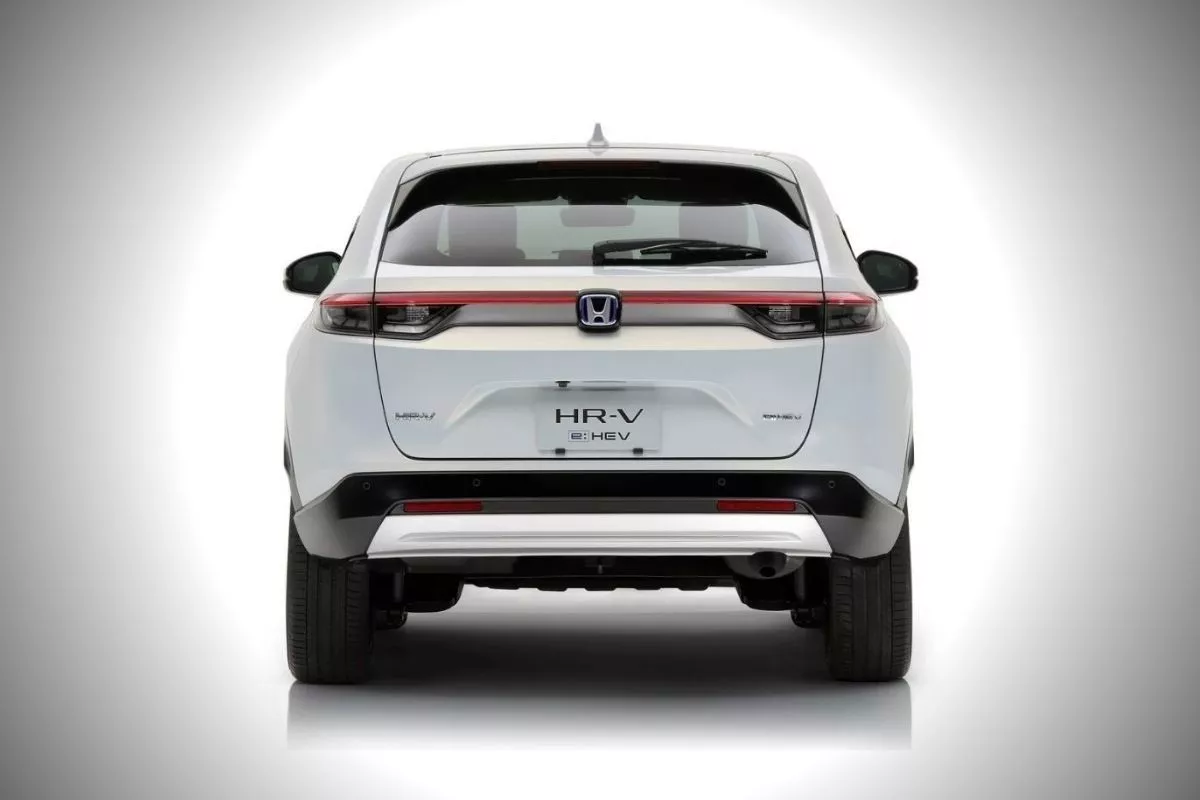
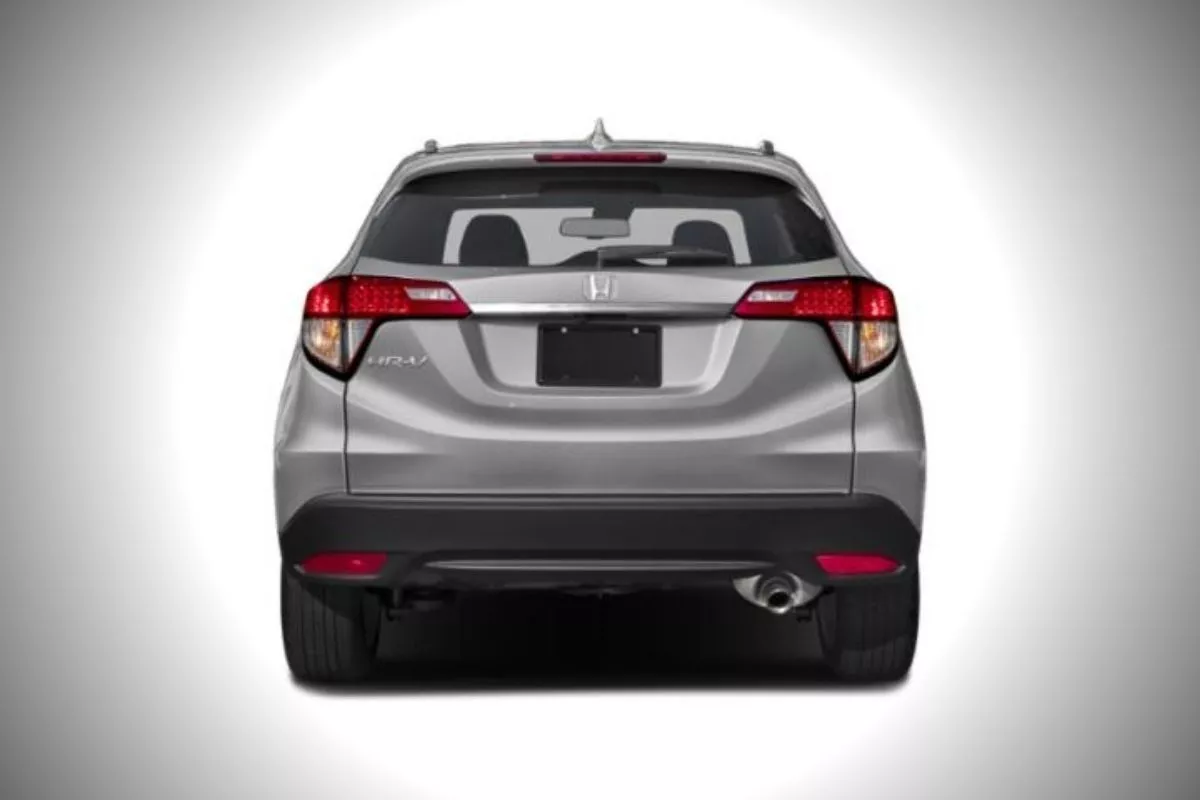
Info on the engine is slim, but let's compare the old (right) and the new one's (left) rear ends
>>> Related: All-new Honda HR-V to have floating touchscreen, panoramic sunroof
There’s also a hybrid drivetrain option that will use the internal combustion component (the same 1.5-liter mill) to charge the car’s batteries. These in turn will power a synchronous electric motor. Again, not much is known about this motor.
Once the new Honda HR-V finds its way to the Philippines, then we’re guessing that it’ll sit as a premium option in the subcompact crossover segment. Read the latest updates on this new model, as well other news from the automotive industry, here on Philkotse.com.
Know more about Honda HR-V 2026

The 2025 Honda HR-V is a subcompact crossover. In the Philippine market, it has two variants. The top-spec RS Turbo CVT is priced at Php 1,799,000. The mid-spec trim meanwhile, is the HR-V V Turbo CVT and it is priced at Php 1,519,000. The entry-level HR-V S CVT meanwhile is priced at Php 1,450,000.
For engines, the HR-V V Turbo and the RS Turbo use a 1.5-liter engine capable of making 174 horsepower and 240 Nm of torque. The HR-V S also uses a 1.5-liter mill, but it is naturally aspirated. In turn, its output is rated at 119 horsepower and 145 Nm of torque. All three trims use a continuously variable transmission sending power to its front wheels.
Size-wise, the HR-V V and RS are 4,385mm long, while the HR-V S is 4,330mm long. All three come with a width of 1,790mm, and a height of 1,590mm. Both also have a wheelbase length of 2,610mm. The top-spec V gets a ground clearance of 181mm, whereas the HR-V S has more at 196mm.
Locally, the HR-V competes against the likes of the Mazda CX-3, Hyundai Kona, Subaru XV, Toyota Corolla Cross, Ford Territory, among others.
>>> New and used Honda Hr-V 2025 for sale in the Philippines
Honda HR-V Launch
Back in June 2015, the Honda HR-V was launched in the Philippines. To complement Honda's compact crossover - the CR-V, they introduced the Honda HR-V, their company's subcompact crossover to the country's market. On August 23, 2018, the facelifted crossover was launched that includes an updated lighting system up front and rear part, a new RS trim level that brings a blacked-out grille together with new 2-tone wheels.
In 2022, Honda Cars Philippines Inc. brought in the third generation model for the local market. It is offered in two different variants. There's the top-spec HR-V V Turbo, and the entry-level HR-V S. Later at the 2022 PIMS in September, the RS Turbo was unveiled.
Honda HR-V Exterior
On the outside, the top-spec HR-V RS, HR-V V, and the entry-level HR-V S are all equipped with LED headlamps, LED taillights, and LED fog lamps. The HR-V V and RS variant then gets auto-folding side mirrors, a sportier bumper set, and a sportier-looking spoiler. The RS is the only variant that comes with sequential turn signal indicators.
Both the V and the S ride on a set of 17-inch wheels, while the RS gets a larger 18-inch set.
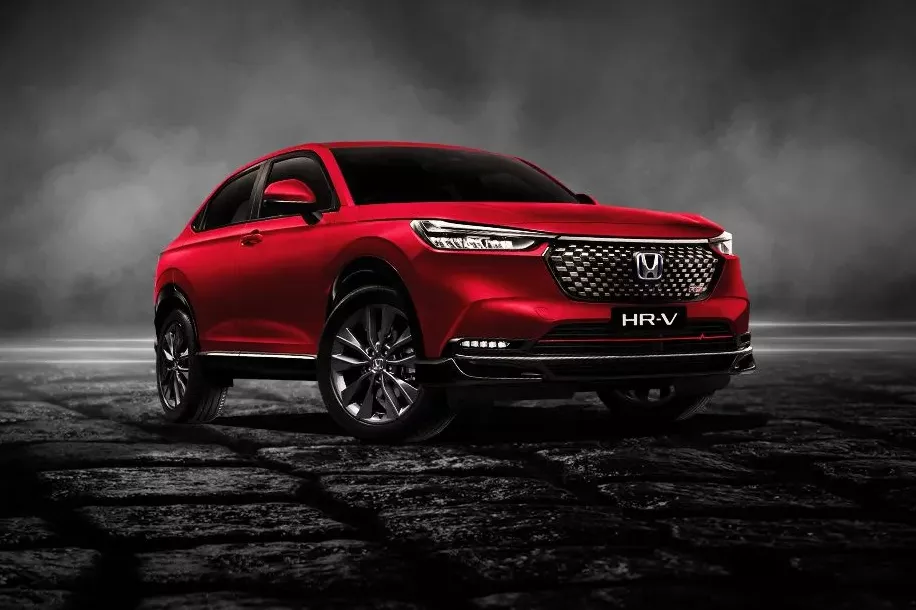
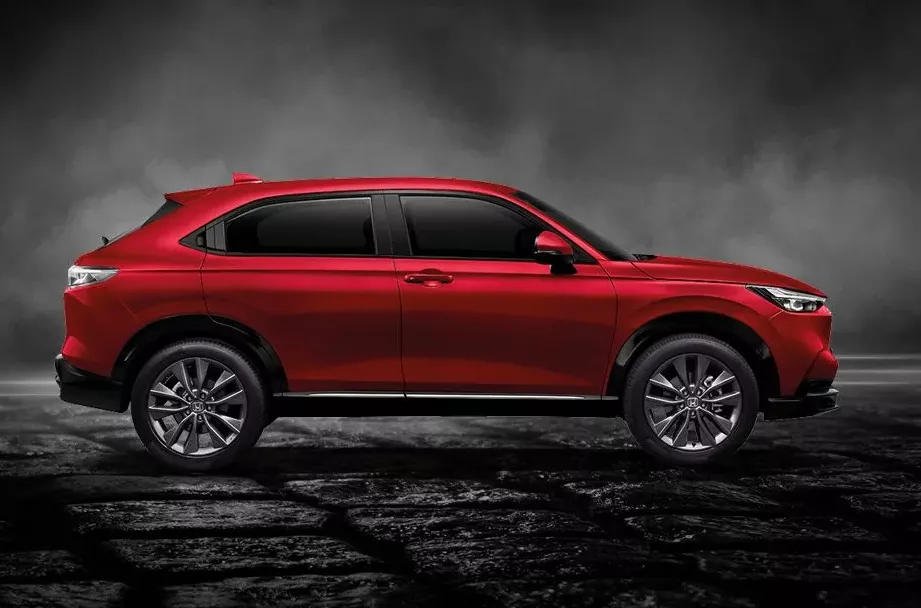
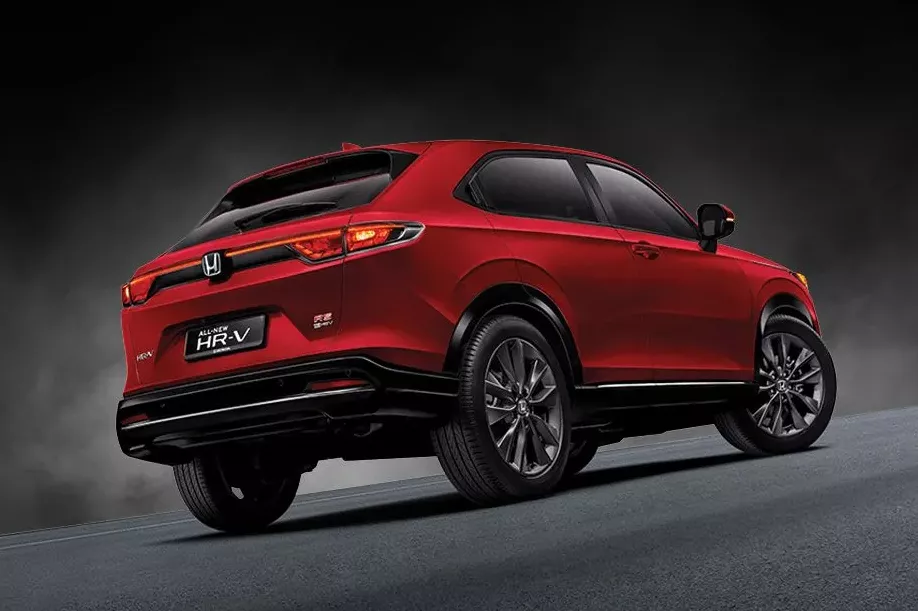
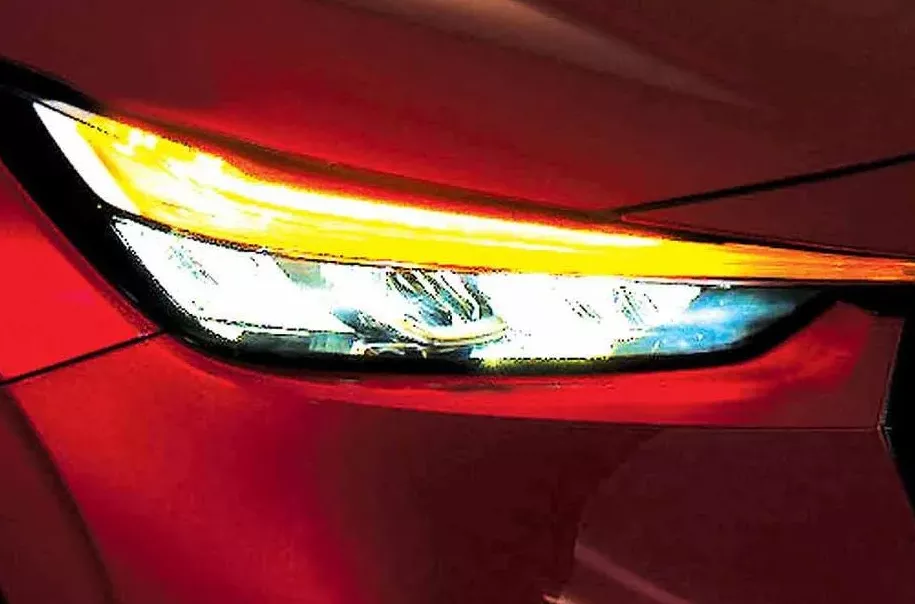
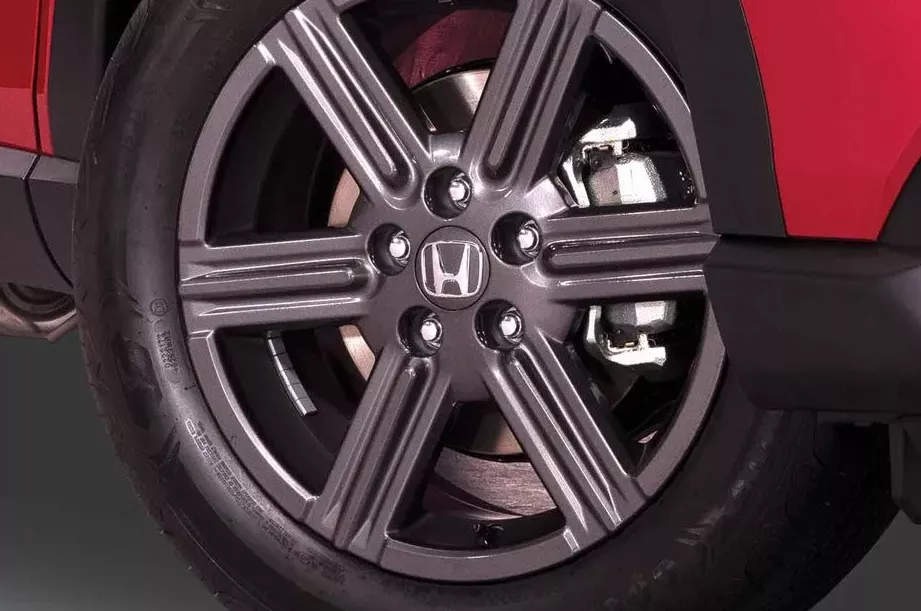
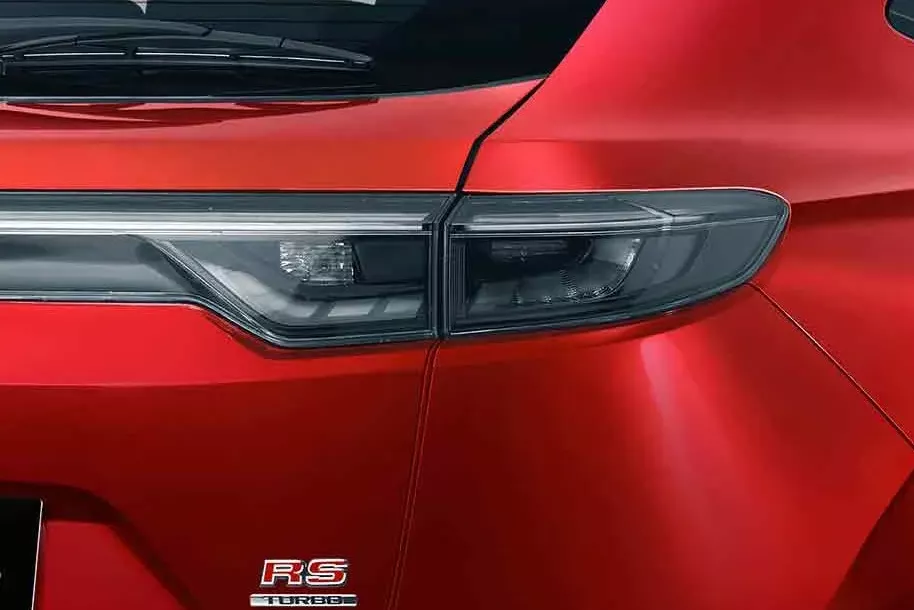
Honda HR-V Interior
The 2024 HR-V can seat up to five. Its occupants are then kept comfortable with an automatic air-conditioning system with rear vents. The top-spec trim in particular ups the premium feel of the model with an auto-dimming rearview mirror, leather upholstery, as well as a leather-wrapped steering wheel and shift knob.
Rearwards, both trims get a 60:40 split-type ULT seat. It shares this feature with the City Hatchback, so it also gets long-mode and tall-mode seat configurations.
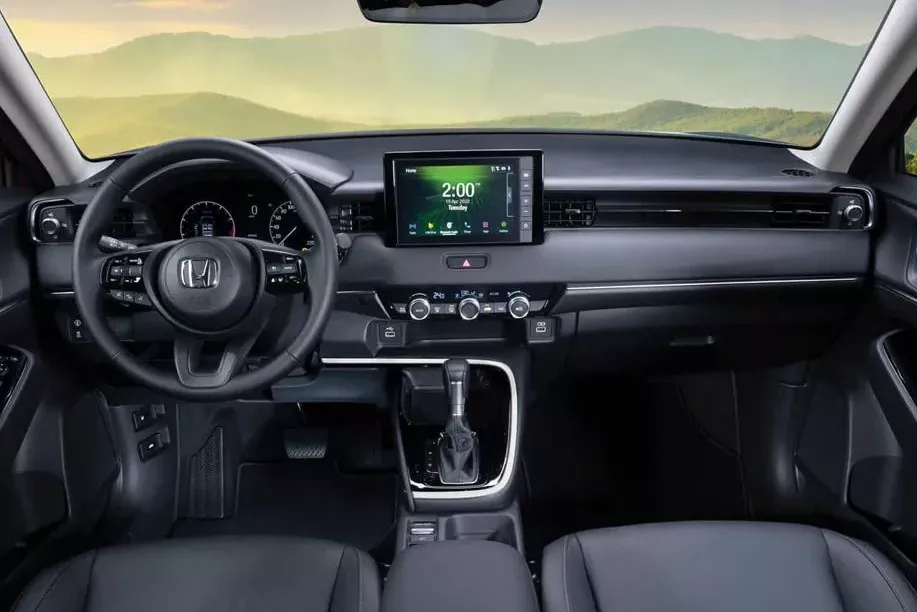
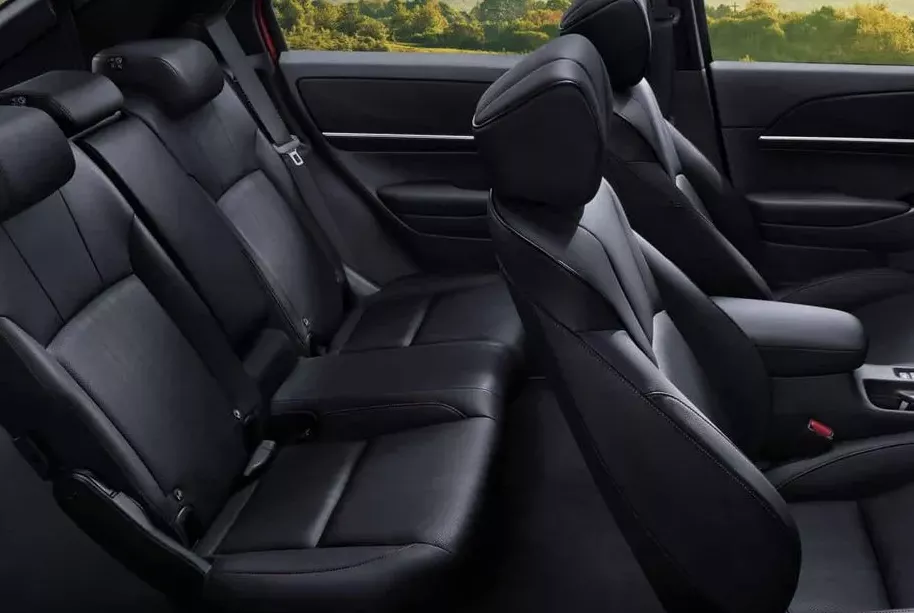
Technology & Safety Features
All HR-V trims for the Philippines come standard with the Honda Sensing Safety suite. This means that all are kitted out with adaptive cruise control, low speed follow, collision mitigation braking, lane keep assist, road departure assist, auto high beams, and lead car departure notification.
The HR-V RS, HR-V V, and HR-V S also get anti-lock braking with electronic brake force distribution, hill-descent, and hill-start assist, ISOFIX child seat anchors, stability control, speed sensing door locks, a reverse camera, among other features.
Entertainment is then handled by an eight-inch touchscreen, which for both trims gets a six-piece speaker system, Apple CarPlay, Android Auto, Bluetooth, USB connectivity, and audio streaming. The top-spec HR-V RS and the V do get a wireless smartphone charger which isn’t present on the HR-V S.
Platform & Chassis
The all-new 2024 Honda HR-V uses the Honda Global Small Car platform. Like its predecessor though, the Philippine-spec version retains a front-engine/front-wheel-drive layout.
For suspensions, it uses a MacPherson strut for the front and an axle-type suspension for the rear. Braking for this model is then handled by disc brakes for all four wheels, and it also uses an electronic parking brake with an auto-hold function.
Engine & Drivetrain
Powering the top-spec HR-V RS and the mid-spec V is a turbocharged 1.5-liter inline-4 gasoline engine that can output 174 horsepower and 240 Nm of torque. Meanwhile, the entry-level HR-V S uses a naturally aspirated inline-4 that is good for 119 horsepower and 145 Nm of torque.
Regardless of configuration, the HR-V comes standard with a continuously variable transmission with a paddle shifter manual mode.
Only the top-spec RS and the V get a sports driving mode, though all HR-V trims have access to a normal mode and economy mode.
For the Philippines, the all-new Honda HR-V can come in six different colors. These are Red Metallic, Crystal Black Pearl, Ignite Red, Premium Opal White Silver Pearl, Platinum White Pearl, and Meteoroid Grey.
In terms of on-board features and safety features, the new 2025 HR-V is now on-par with most of its competitors. The turbocharged variant in particular also ranks as among the most powerful models within its segment and price range.
Honda HR-V 2025 Price List
| Variants | Price |
|---|---|
| Honda HR-V 1.5 S CVT Honda SENSING | ₱1,450,000 |
| Honda HR-V 1.5 S CVT Honda SENSING Platinum White Pearl | ₱1,470,000 |
| Honda HR-V 1.5 V Turbo CVT Honda SENSING | ₱1,519,000 |
| Honda HR-V 1.5 V Turbo CVT Honda SENSING Premium Opal White Silver Pearl | ₱1,539,000 |
| Honda HR-V 1.5 RS Turbo CVT Honda SENSING | ₱1,799,000 |
| Honda HR-V 1.5 RS Turbo CVT Honda SENSING Premium Opal White Silver Pearl | ₱1,819,000 |
Honda HR-V Pros & Cons
Pros
-
Lively engine
-
Plenty of features
-
Practical
Cons
- Rear seat headroom is not the best
Honda HR-V FAQs
1. Which one is cheaper: the Honda HR-V or the Honda CR-V?
Honda HR-V is. The highest price of HR-V is Php1,759,000 meanwhile CR-V price is Php 2,100,000 - 2,610,000.
2. Is the Honda HR-V a reliable car?
Yes, it is. The Reliability Rating of this car is 5/5 and the HR-V also ranks 1st out of 7 for subcompact SUVs.
3. What does the HR-V stand for on Honda?
HR-V means High-Rider Revolutionary Vehicle.
₱ 1,389,000 - ₱ 1,739,000
ExploreRecent posts
- new honda ceo open for alliances Feb 22, 2021
- honda toyota 2020 asean ncap safety awards Mar 10, 2022
- Honda Brio tops HCPI 2020 sales Nov 12, 2021
- Honda HR-V RS brown interior Sep 20, 2022
- Honda SUV Philippines: List of all models, price & brief review Apr 15, 2021





![[FOR FUN] Top 5 anime series that car enthusiasts will love](https://img.philkotse.com/crop/94x52/2019/11/06/xgWRvxxG/top-anime-for-car-lovers-5c8c.jpg)










